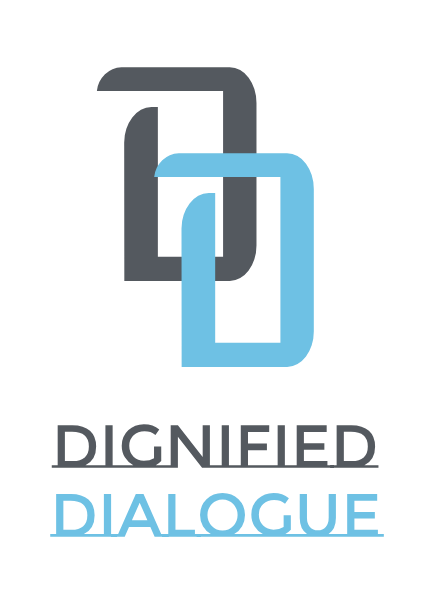Dignified Dialogue: Beginning with Ourselves
by Jamil Popatia | December 31, 2018
As I think back about the year 2018, so many memories manifest; painful and joyful moments, meeting new and interesting people, challenges, goals and obstacles and most memorably, the gaining of fresh insights. One such insight has definitely been the most life-serving shift for me over this past year: How do we communicate with ourselves? More specifically, how de we communicate with ourselves in a way that brings joy and meaning, despite external circumstances?
When I first thought of the idea and name Dignified Dialogue, I envisioned it as a platform to share my knowledge, experience and longings about Nonviolent Communication. While it is certainly still true that this is a component of my offerings – in fact, it is indeed the primary focus of my work, its starting point lies elsewhere. During a conversation with one of my mentors in NVC, I shared my ideas about Dignified Dialogue and its potential to benefit families, couples, organizations, faith and other intentional communities and once I had finished my sharing I asked what she thought and if she had any advice for me. After a substantially long pause in our conversation she said something that deeply resonated with me:
While I am drawn to the name you have come up with, I invite you to embrace the reality that all dialogue, be it dignified or otherwise, starts with the self – the dialogue that one has with oneself at any given moment in our lives.
Prior to her response, I knew this to be true, intellectually but it took considerable time and inner work for me to actually embrace the fact that all dialogue begins with what we are saying to ourselves, thinking within our minds and feeling within our hearts. What a beautiful place to begin this work of compassionate communication!
Just the other day, a driver cut me off on the road and apparently thought nothing of it. I found myself in my mind-chatter saying “What the heck was he thinking? Does he not have any consideration for others? Let me catch up and give it right back to him by cutting him off!” The dialogue was well underway within myself and it was anything but dignified. What were my thoughts? What was I whispering under my breath? Most importantly, how did I feel at that very moment? Thankfully, the words of my mentor echoed in my heart’s ear and I was able to pause. And wait. I wanted to let the initial rage wear off a bit and start to breathe again. For some this can be momentary, almost instantaneous but for me, it took time. Once I reached a state of calm and quiet I started to ask myself, what are the stories I’m telling myself? That he should be more considerate, that he ought to be more careful, that he was an asshole of a driver! All of these were screaming in my head, only now I could hear them as an observer, free from the fire of anger that so quickly consumed me.
Dignified dialogue begins with us. It starts from within ourselves. In the language of Nonviolent Communication, it begins with the process of self-empathy – what am I feeling right now? What are the needs that are at play at this very moment?
What about you? I will assume that you have had much inner dialogue with yourself. How much can you recall? Was it life-serving? Were you able to catch the stories and mind-chatter you were experiencing? If so, how did the dialogue ensue thereafter? If not, what happened and more importantly, how did you feel afterwards?
Please leave a comment below.
With dignity,
Jamil Popatia
Recent Posts
-
Enemy Images and the Creation of “The Other”: Reflections on the New Zealand Mosque ShootingsApril 8, 2019/0 Comments
-
Dignified Dialogue: The InvitationFebruary 4, 2019/
